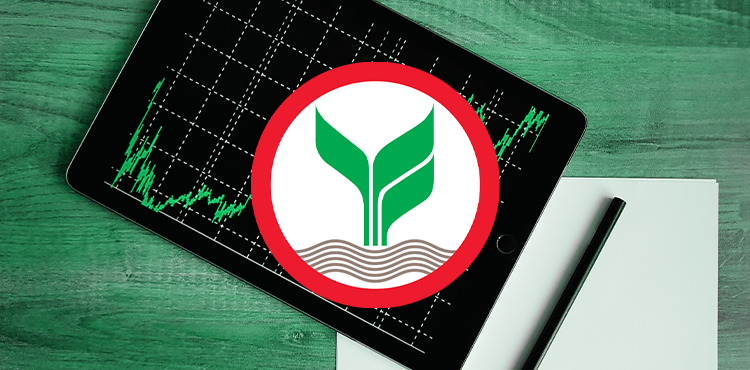Shares of Thailand’s leading banks Kasikorn fell shareply by more than 4% on Friday morning trading after the company reported disappointed earnings for the year 2022.
The share price of Kasikornbank Pcl. (SET:KBANK) dropped THB6.50/share, or 4.23%, to THB147.00/share at 10.46 A.M. (Thai time), with a trade value of THB5,594 million.
KBANK reported a slight annualized decrease by 6% of net profit, compared to 2021. However, its net profit plunged 70% from THB10,574 million in 3Q22 to THB3,191 million in 4Q22. Despite a better performance from net interest income and non-interest income, the decrease in net profit was mainly due to its significant surge in expected credit loss by 130% in the fourth quarter of 2022. The bank noted that an increase in ECL was due to its continuously adopting a prudent approach and to cope with uncertainties of economic circumstance.
Krungsri Securities said that the 4Q22 earnings report was far below market estimates. The key negative surprise was a surge in ECL, by 129% QoQ and 138% YoY to THB22.8 billion. This is the highest ECL booked in a quarter by KBANK (after THB20 billion in 2Q20 during first wave of Covid-19) and much higher than the quarterly average of THB9 billion in post-pandemic. Although KSS expected ECL to rise in 4Q22 because the management adopted a strategy to clean up its balance sheet, it came in worse than its expectation and caused 2022 earnings to fall 6% YoY to THB35.8 billion.
Therefore, KSS has downgraded KBANK to under review with negative tone outlook (previous target price at THB180 based on 0.7x PBV). KBANK could experience heavy selling in KBANK after the disappointing result and the analyst believes it would take time to regain confidence in its asset quality.
However, KSS believes if KBANK does not book another large ECL, earnings would recover sharply QoQ and YoY in 1Q23 driven by normalizing ECL as well as higher NIM after M-rate hikes following an increase in policy rate and expiring FIDF measure.




